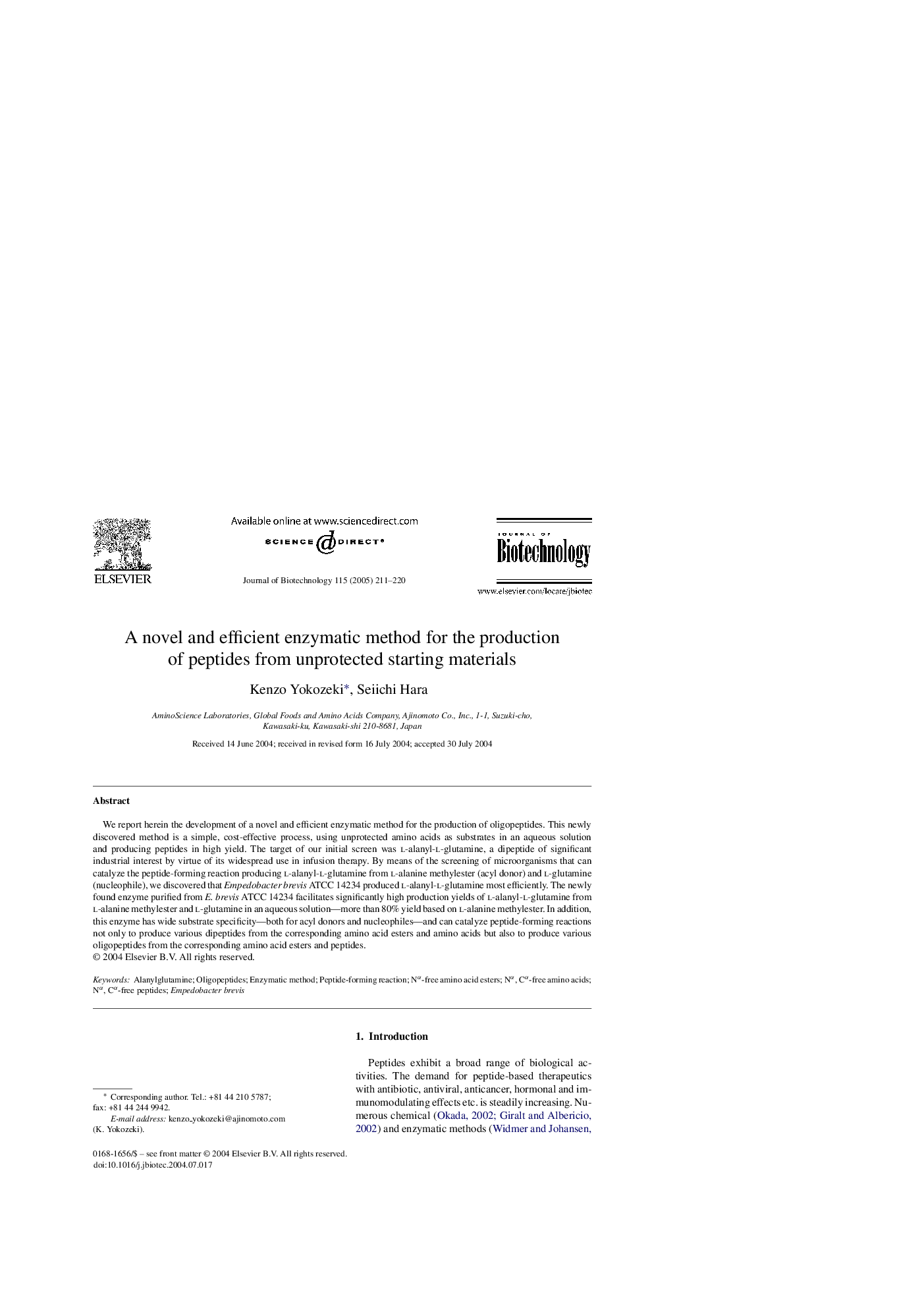| Article ID | Journal | Published Year | Pages | File Type |
|---|---|---|---|---|
| 9604495 | Journal of Biotechnology | 2005 | 10 Pages |
Abstract
We report herein the development of a novel and efficient enzymatic method for the production of oligopeptides. This newly discovered method is a simple, cost-effective process, using unprotected amino acids as substrates in an aqueous solution and producing peptides in high yield. The target of our initial screen was l-alanyl-l-glutamine, a dipeptide of significant industrial interest by virtue of its widespread use in infusion therapy. By means of the screening of microorganisms that can catalyze the peptide-forming reaction producing l-alanyl-l-glutamine from l-alanine methylester (acyl donor) and l-glutamine (nucleophile), we discovered that Empedobacter brevis ATCC 14234 produced l-alanyl-l-glutamine most efficiently. The newly found enzyme purified from E. brevis ATCC 14234 facilitates significantly high production yields of l-alanyl-l-glutamine from l-alanine methylester and l-glutamine in an aqueous solution-more than 80% yield based on l-alanine methylester. In addition, this enzyme has wide substrate specificity-both for acyl donors and nucleophiles-and can catalyze peptide-forming reactions not only to produce various dipeptides from the corresponding amino acid esters and amino acids but also to produce various oligopeptides from the corresponding amino acid esters and peptides.
Keywords
Related Topics
Physical Sciences and Engineering
Chemical Engineering
Bioengineering
Authors
Kenzo Yokozeki, Seiichi Hara,
